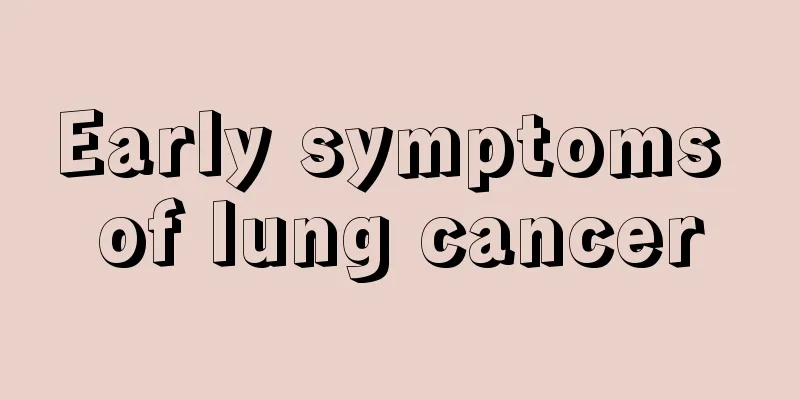Eight strange body noises that indicate illness

|
Sometimes the sounds your body makes can be health alerts. Learning to interpret different body sounds can help determine possible medical conditions and buy time for treatment. Below are eight disease signals conveyed by "body sounds". If you hear these sounds in your body, don't take them lightly. 1. Habitual snoring at night: Beware of sleep apnea If you have the habit of snoring and gasping for breath while sleeping at night, wake up covered in sweat, or feel sleepy during the day, you may have sleep apnea. You should see a doctor as soon as possible because sleep apnea increases the risk of diabetes and stroke. Experts suggest that nasal sprays can help relieve snoring, but weight loss is more effective. 2. Buzzing or bell-like sounds in the ears: Beware of inner ear inflammation Tinnitus actually comes from the brain, which misinterprets false electrical signals as noise. The cause may be inner ear damage. Therefore, it is best to wear earplugs in noisy environments. But if tinnitus persists and occurs in one ear, it is best to see a doctor. This may be due to an infection such as otitis interna. 3. Stomach pain with gurgling sound: Beware of intestinal obstruction Generally speaking, normal people will produce bowel sounds when digesting food. However, if bowel sounds are prominent and are accompanied by pain or swelling, especially if a sloshing sound is heard when the abdomen is pressed, a doctor should be consulted. Can The possible cause is that the intestines move too fast or too slowly. In rare cases, it may be intestinal obstruction that requires surgical treatment. 4. Whistling sound from the nose: Beware of nasal septum perforation Nasal congestion can easily cause whistling noises in the nose. Blowing your nose, using steroid nasal sprays, etc. can help solve the problem. However, if whistling noises occur after a facial injury or if you pick your nose too vigorously, you should see a doctor immediately. This may be due to a perforated nasal septum, which may require surgery. 5. Jaw bone clicking or popping sound: Beware of temporomandibular joint dislocation If your jawbone is clicking or popping and the sound is loud and harsh, you may have a misaligned temporomandibular joint. But if you have a stiff jaw or are unable to open or close your mouth, you should see a doctor. If it is nocturnal bruxism, it will cause joint wear and tear and cause pain. 6. Popping sounds in the knee and ankle joints: Beware of meniscus tears, arthritis or ligament strains If a joint sounds unusual and is accompanied by pain, swelling, or stiffness, or if it affects movement, see a doctor immediately. Knee pain may be caused by a torn meniscus, while ankle pain may be caused by arthritis or a ligament strain. 7. Constant hiccups: Beware of gastrointestinal ulcers Between the chest cavity and the abdominal cavity, there is a thick muscle membrane like a hat, which is the diaphragm. When stimulated by cold, full meals, eating too fast, eating dry and hard food, the diaphragm will experience paroxysmal and spasmodic contractions, and people will hiccup continuously. Short-term hiccups are also a protective reaction of the body, but if they occur continuously or are stubborn and difficult to heal, they may indicate diseases such as cholecystitis and peptic ulcer. In addition, bad psychological states such as tension and anger often cause hiccups. There is a little trick to distinguish whether hiccups are caused by an organic disease. If the hiccups can be relieved within 24 hours and stop automatically after falling asleep, they are mostly not caused by disease. However, if the hiccups continue to occur for more than 24 hours and do not stop even after falling asleep, they are mostly suffering from illness. 8. Joint noises: Beware of bone and joint diseases Joint movement is restricted by fascia, ligaments, muscles and other tissues. There is a lubricating fluid in the joint cavity, which contains gas. When the joints move, the gas is squeezed out of the liquid, making a sound. When the joints are flexed and extended excessively, there is often a "pop" sound, which generally does not affect health. However, if the joints often pop and are accompanied by pain and movement disorders, you should be careful, as it may be bone and joint diseases such as tenosynovitis, bursitis, and meniscus injury. |
<<: There were signs of cancer 2 years ago
>>: To see whether your spleen and stomach are in good condition, look at your appearance
Recommend
Nine questions reveal the secrets of paper towels
For the same brand of tissue paper, is the expens...
, Why do I become sexually cold after pregnancy
For all female friends, pregnancy can be a very, ...
How to squeeze out pimples?
Acne is a relatively common skin disease. Most pe...
What is the yellow thing in the shrimp head
Many people don’t know what the yellow stuff insi...
What is the main cause of cervical cancer in women?
What are the causes of cervical cancer? I believe...
Xanthium sibiricum leaves for arthritis treatment
There are many types of arthritis, among which rh...
How to effectively treat habitual dislocation
Habitual dislocation can easily occur in some chi...
The correct way to apply lotion
Whether the effect of women's makeup is good ...
There are small pimples in my eyes
In fact, the eye diseases that everyone is more f...
What are the symptoms of lung cancer recurrence? These symptoms will appear when lung cancer recurs
For every disease, whether it is during the treat...
Does colitis medicine work quickly?
Colitis is one of the most common intestinal dise...
How to prevent prostate cancer? Keeping a low mind and exercising more can prevent prostate cancer
There are many ways to prevent prostate cancer. F...
How to clean moldy clothes
I believe that many friends have had this experie...
Can yam and black beans be eaten together
Yam is a common food with high nutritional value....
Should I use a curling iron or a straightener for air bangs?
If you ask which type of bangs is the most popula...









